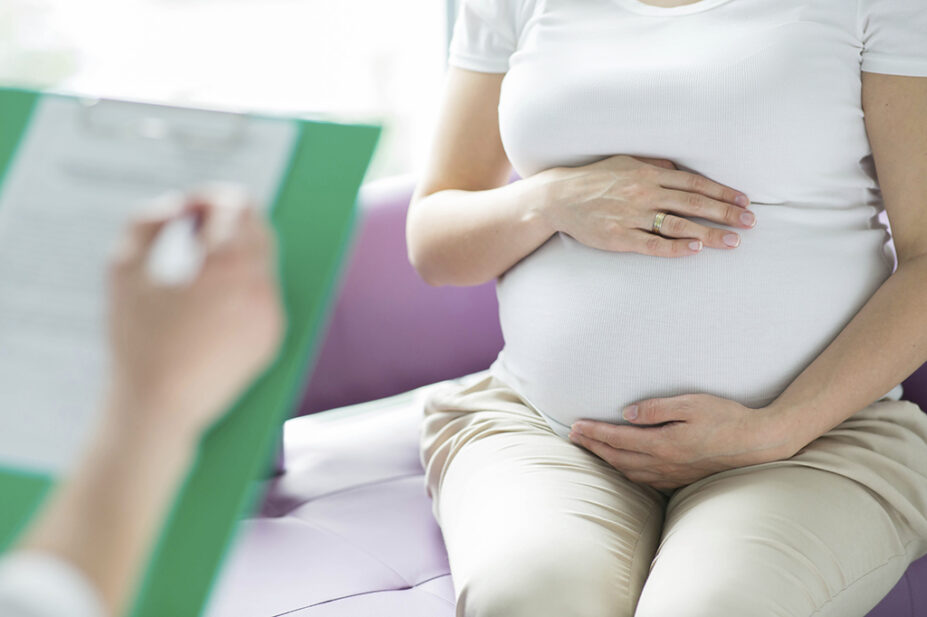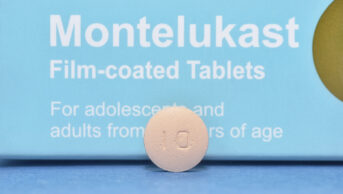
PEAKSTOCK / SCIENCE PHOTO LIBRARY
A significant number of women and girls taking anti-seizure medications are unaware of the increased risk of birth abnormalities if taken during pregnancy, despite recommendations they should be informed, a survey by a group of epilepsy charities has revealed.
The survey, which received more than 1,200 responses, found that 33% of women and girls taking carbamazepine, phenobarbital, phenytoin, pregabalin or topiramate were unaware of the increased risk of physical birth abnormalities if taken in pregnancy.
This is despite advice issued in 2021, following a safety review by the Commission on Human Medicines, that clinicians should warn women with epilepsy of the risks at initiation of the medicines and at routine recommended annual reviews, as well as women who are planning to become pregnant.
In November 2022, Epilepsy Action, Young Epilepsy and Epilepsy Society carried out a survey of UK women and girls with epilepsy, and their parents and carers, asking them about the information they have received around the risks of taking certain epilepsy medicines during pregnancy.
The aim of the survey was to measure current awareness around the risks of sodium valproate, as well other epilepsy medicines, including carbamazepine, phenobarbital, phenytoin and topiramate.
Similar surveys have previously been conducted in 2017 and 2019.
The survey did find that awareness associated with the risks of sodium valproate, specifically, has increased since 2019.
Some 9% of respondents taking sodium valproate said they did not know that taking it during pregnancy could increase the risks of serious birth defects or learning and development problems in children, compared to 18% who responded to the 2019 survey.
However, the results for non-valproate medicines were less positive.
Overall, 31% of respondents said they had not had a discussion with a healthcare professional about the risks associated with taking epilepsy medicines during pregnancy and, of those who had, 31% said they were “not satisfied” with those discussions.
Of those who had had a discussion with their healthcare professional, 49% said they had discussed the risks with a neurologist/paediatrician in the past 12 months, while just 9% said they had discussed the risks with a pharmacist in the past year.
“From the results, it is clear that there is still an ongoing requirement to communicate the risks associated with not only valproate, but all anti-seizure medications during pregnancy,” the survey report recommended.
Nicola Swanborough, head of external affairs at the Epilepsy Society, said: “It is extremely concerning that, two years after the Commission on Human Medicine’s landmark report, there is still such lack of awareness about the risks to unborn babies associated with many epilepsy medicines.”
Claire Anderson, president of the Royal Pharmaceutical Society, said pharmacists play an important role in reducing risks with medicines use: “As the results demonstrate, it’s important for pharmacists and other healthcare professionals to talk to women who are prescribed anti-seizure medicines so that they can make informed choices about their health.”
In January 2023, an analysis of data from the Medicines and Pregnancy Registry by The Pharmaceutical Journal revealed that NHS England had reduced the number of female patients who can become pregnant taking sodium valproate, from 27,411 in April 2018 to 19,766 in March 2022 — a 28% reduction.
However, it highlighted that to meet its own 50% reduction target, the health service in England would need to reduce this figure by almost the same again by the end of 2023 (to 13,705), with experts saying more action is urgently needed.
1 comment
You must be logged in to post a comment.
You may also be interested in

MHRA reviewing safety of asthma drug as Yellow Card reports increase

MHRA says fluoroquinolones should be administered only when no other antibiotics are appropriate

Enjoyed the podcast and it hi-lights a very important safety issue that has needed broadcasting widely for many years.